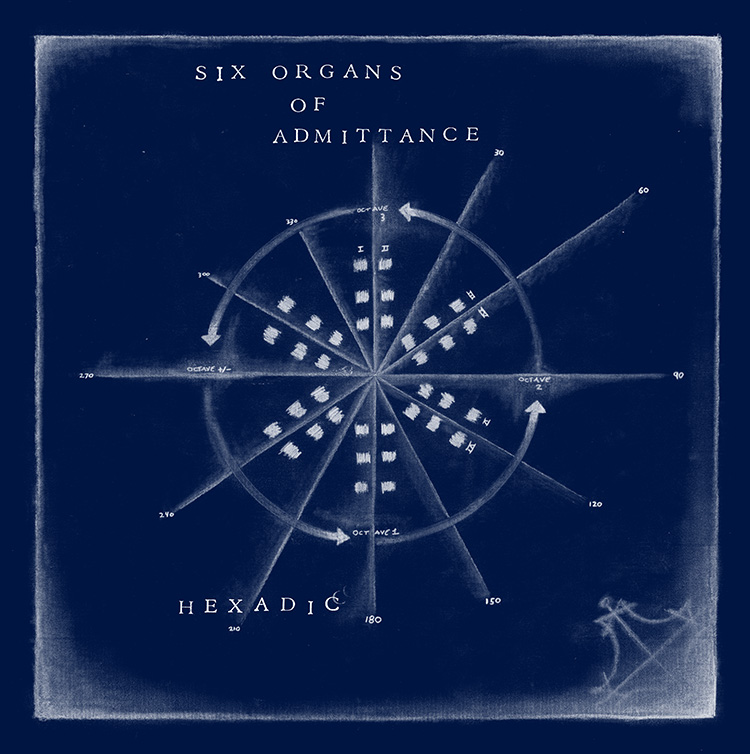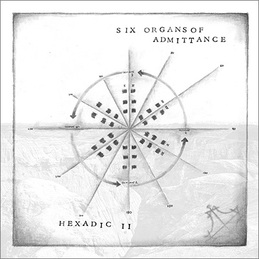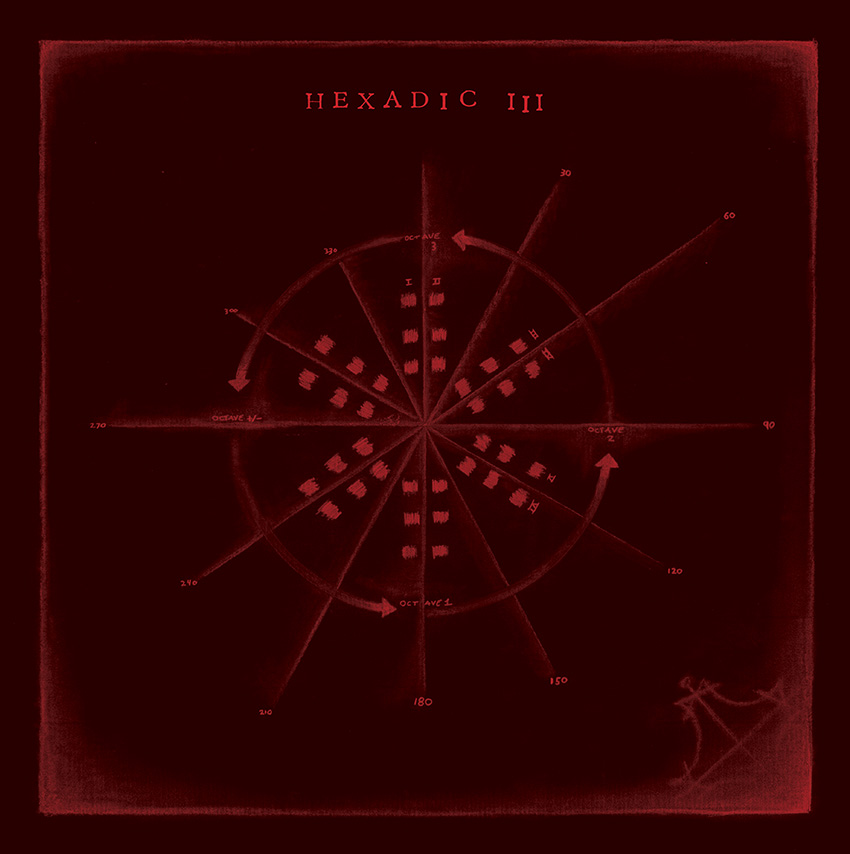
The Hexadic System
The Hexadic System is a chance operation tool for composition developed in 2013-2015. The system uses a standard deck of playing cards to create parameters for music and language. In 2015, Drag City published The Hexadic System, which detailed the various techniques involved in the system. The system is laid out in a rhizomatic fashion that allows for as many or as few of the techniques related to the system to be used in any given instance.
After release of the book, Drag City understandably wanted to sell some, so they shot this video that sort of explains some of the parts of the system, though it’s hard to describe the non-linear aspects of it in a linear format as a video:
One thing the video does show is the game aspect of the system, where two or more guitarists can play against each other with a dealer between them. This aspect of the system can also be used for compostion, as Phil Legard demonstrates on his Hexadic System page on this website.
Three records have been released based on the Hexadic System:

Hexadic I
The first Hexadic record features an avant-rock trio of Ben on guitar, Noel Von Harmonson on drums, and Charlie Saufley and Rob Fisk trading bass duties. This record pushes the sonics into the red, but that was a production decision, not one that came from the system.

Hexadic II
The second Hexadic record follows a more acoustic direction and use the same charts that were used on the first Hexadic record to create a totally different world. This contrast in sound, while using the same charts, showcases the diversity available in the system depending on one’s approach. For instance, the song Exultation Wave uses the same Hexadic charts as the song Wax Chance on Hexadic I.

Hexadic III
A compilation made of of songs by various artists, all using the Hexadic System in one form or another. The artists on the record are Moon Duo, Jenks Miller, Meg Baird and Charlie Saufley, Tashi Dorji, Richard Youngs, Stephen O’Malley and Tim Wyskia and Marc Urselli, and Phil Legard.
The third Hexadic record would have unintended reverberations into 2023, when Khanate would release their record, To Be Cruel. From an article on Khanate on the Quietus website:
“it was during a visit by O’Malley that the pair recorded the track ‘Solastalgia’ (with John Zorn engineer Mark Urselli) at Eastside Sound Studio for the Ben Chasny curated compilation Hexadic III. Stephen O’Malley, who is talking to me from Paris, his home of 16 years, reveals that his ideas for this initial session were inspired by Chasny’s book, The Hexadic System, saying he used it as ‘a kind of tarot – a divinatory approach’ to break free from entrenched compositional habits. The pair were delighted with the results. Wyskida adds: “We decided a short while later, ‘Hey, let’s jump into a studio and work on some more music to see how it goes.’”
As a longtime Khanate fan, this was amazing news.
It should be noted that although the Hexadic System may have had a little something to do with the beginnings of the Khanate record, the record sounds completely like Khanate, which only reinforces the fact that the system is there to draw out ideas, not demand rules be followed.